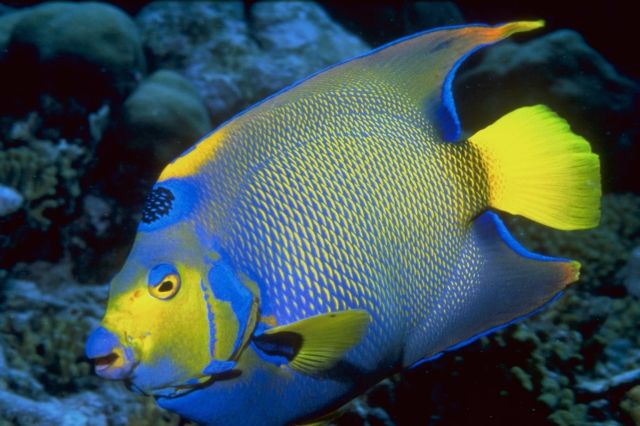

Work in Progress
Key findings:
Some fish are capable of social learning. Hatchery-reared Atlantic salmon can be taught to target items as prey by observation alone. Social learning can also help fish improve their success at foraging.
Contrary to claims by Varner (1998), fish are indded capable of progressive adjustments in multiple reversal trials - as long as olfaactory stimuli are used. Earlier, we examined arguments that creatures which show improvements in serial reversal learning were capable of meta-learning, insofar as they had to develop primitive hypotheses about changes in their surroundings. We tentatively concluded that this was the most reasonable interpretation of the experimental evidence, and that the behaviour should be described using an agent-centred intentional stance.
Bshary, Wickler and Fricke (2001) argue that most kinds of behaviour interpreted as cognitive in primates can be found in certain fish as well. Fish are highly social animals which exhibit complex forms of behaviour and learning. For example:
some fish can recognise other individuals, using visual or acoustical cues, and "individual recognition can safely be assumed to be widespread across fish families";Back to Chapter 2 Back to Case studies Previous case study - cephalopods Referencessome species (sticklebacks and guppies) are capable of book-keeping, and remember their partners' behaviour during past interactions. There is some evidence that they adopt a "tit-for-tat" strategy;
fish are capable of observational learning - that is, they can use information from observations of conspecifics;
schools of fish have their own "traditions" relating to their choice of sites for resting sites, migration routes and food sources, and this knowledge is transmitted through social learning;
young fish learn what to eat by observing adults, and fish definitely learn horizontally from conspecifics;
there are instances of interspecific cooperative hunting between giant moray eels and red sea coral groupers;
co-operative hunting between conspecific predators is widespread in fish, and different individuals play different roles;
there is an array of behaviours found in a variety of fish families (categorisation, cheating, punishment, manipulation of individuals and altruism) which are usually thought of as unique to primates;
some fish use advanced foraging techniques - e.g. removing obstacles to reach hidden prey, and using their spatial intelligence to gain access to prey;
a few fish are capable of tool-using behaviour in the strict sense of the word (Beck, 1980), where an animal directly handles an object in order to obtain a goal. South American cichlids are a case in point.